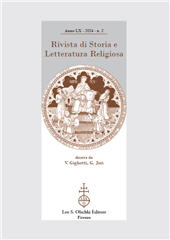Les origines intellectuelles de la méthode d'immanence : modernistes et antimodernistes français devant l'apologie pascalienne de 1907 à 1914
P. 409-440
Alors qu'un retour des catholiques français à Pascal, longtemps considéré avec méfiance en raison de ses connivences jansénistes, s'est opéré à partir du début des années 1890, la publication de la Lettre sur les exigences de la pensée contemporaine en matière d'apologétique (1896) du philosophe Maurice Blondel change les conditions de réception de l'apologie pascalienne. La mise à l'Index en 1906 des Essais de philosophie religieuse (1903) de Lucien Laberthonnière, puis la publication de l'Encyclique Pascendi finissent par faire de Pascal, invoqué par Laberthonnière à l'appui de la méthode d'immanence, un auteur précurseur du modernisme. À la veille de la Première Guerre mondiale, pourtant, plusieurs auteurs catholiques défendent, en se prévalant de l'apologie pascalienne, un immanentisme modéré susceptible d'être tenu pour orthodoxement catholique. [Résumé par l'éditeur]
While a return of French Catholics to Pascal, long viewed with suspicion because of his Jansenist connivance, took place from the beginning of the 1890s, the publication of the Lettre sur les exigences de la pensée contemporaine en matière d'apologétique (1896) by the philosopher Maurice Blondel changes the conditions of reception of the Pascalian apology. The Roman condemnation in 1906 of the Essais de philosophie religieuse (1903) by Lucien Laberthonnière, then the publication of the Encyclical Pascendi ended up making Pascal, invoked by Laberthonnière in support of the method of immanence, a precursor of modernism. On the eve of the First World War, however, several Catholic authors, taking advantage of the Pascalian apology, defended a moderate immanentism likely to be considered orthodox from a Catholic point of view. [Publisher's text]
-
Articoli dello stesso fascicolo (disponibili singolarmente)
-
Informazioni
Codice DOI: 10.1400/299463
ISSN: 2035-7583


